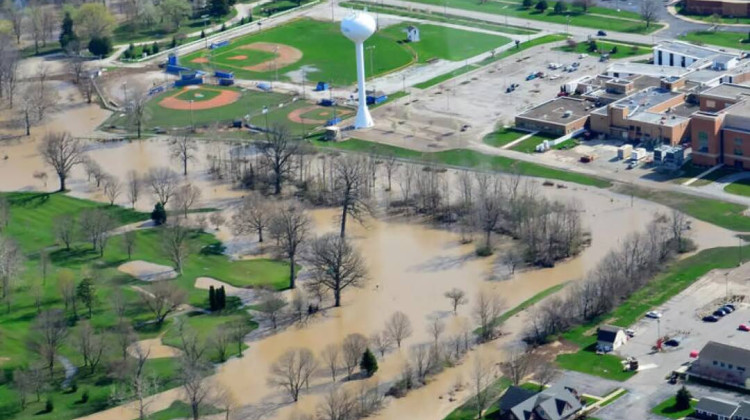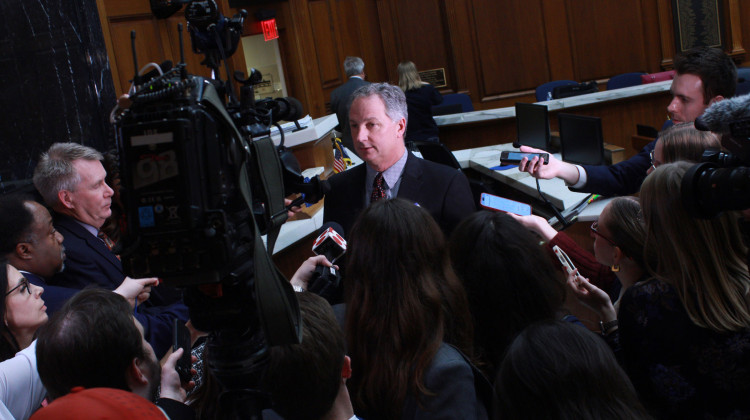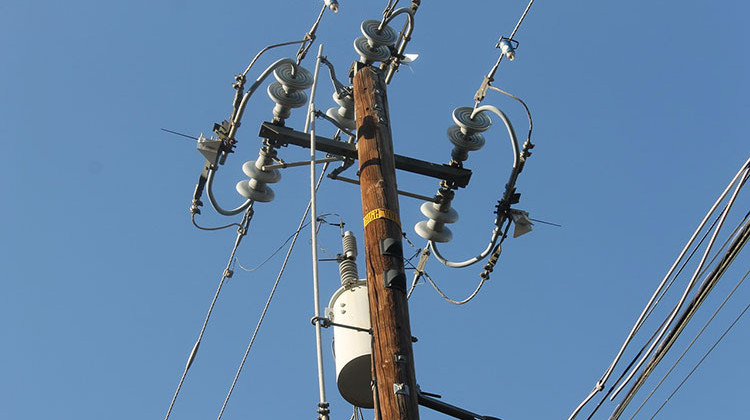
The city of Tipton during the flood of 2013. Tipton County developed a flooding resilience plan and discouraged certain types of uses on the floodplain after the flood.
Courtesy of Tipton CountyLocal governments in Indiana are doing more to make their communities more sustainable and resilient to natural disasters.
That's according to an Indiana University survey of government officials in more than 150 cities and towns.
The number of communities budgeting or writing grants for sustainability nearly doubled in the past three years. More than half of cities adopted ordinances to prevent new construction in floodplains.
IU assistant professor Aaron Deslatte co-directs the Metropolitan Governance and Management Transitions Laboratory, which researches how urban and rural governments tackle sustainability and resilience issues.
He said more communities are likely working on sustainability and resilience initiatives because of billions of dollars in local grants through the Biden administration — some of which the current administration is rolling back.
Cuts to property taxes are also affecting cities. South Bend slashed 70 percent of the funding for its sustainability office.
READ MORE: How can you and your city prepare for more flooding due to climate change?
Looking for answers on climate solutions and climate change? Find more of our reporting through our project ipbs.org/climatequestions.
Deslatte said funding issues may kill sustainability and resilience initiatives in some cities, but it will just slow down progress in others.
"They don't have that many options, right? They have to adapt. You have to adapt to environmental change. And so I think that general trajectory will continue," he said.
Deslatte said more than 40 percent of cities and towns have formed regional collaborations to help each other with things like greenhouse gas inventories and climate action plans.
"The value of those types of planning efforts is that they generate data, they generate insights and information and engagement in the communities — and those things can continue to make progress," he said.
Deslatte said these collaborations can help communities with sustainability efforts despite tight budgets and limited staff.
The survey said there is still much more that cities and town could do — including partnering with businesses to achieve sustainability goals, offer incentives for green affordable housing and provide low-interest energy efficiency loans.
Rebecca is our energy and environment reporter. Contact her at rthiele@iu.edu or on Signal at IPBenvironment.01. Follow her on Twitter at @beckythiele.
 DONATE
DONATE








 Support WFYI. We can't do it without you.
Support WFYI. We can't do it without you.